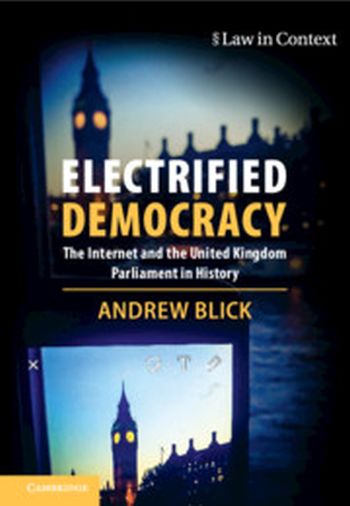
The story of how the UK Parliament came to use the Internet from the 1960s onwards has never been told. Electrified Democracy places the impact of technology on parliamentary workings in its longer term historical context. The author identifies repeating patterns of perception and analysis, and cultural tendencies in the perception of inventions dating back over centuries that have reasserted themselves in connection with the parliamentary response to networked computers. He uncovers evidence and makes new connections, while situating all this within the wider global debates on connections between communication and democracy in the age of the Internet, constitutional law and history, and 'law and technology'. This book will be of interest to a wide readership including policy makers, researchers, and all those interested in contemporary controversies about the role of the Internet in modern societies.